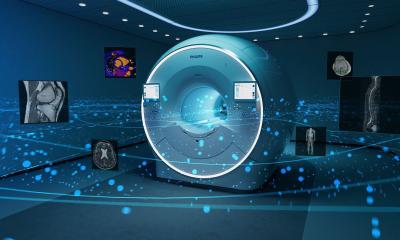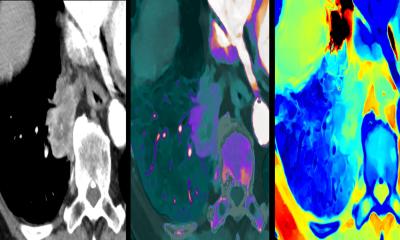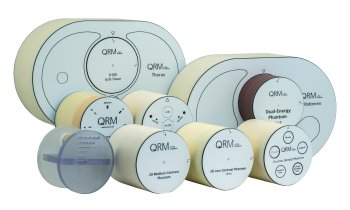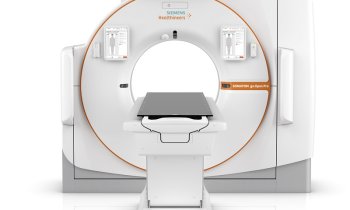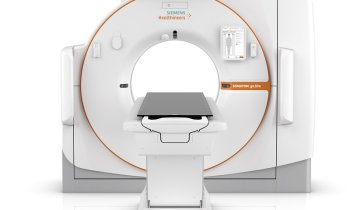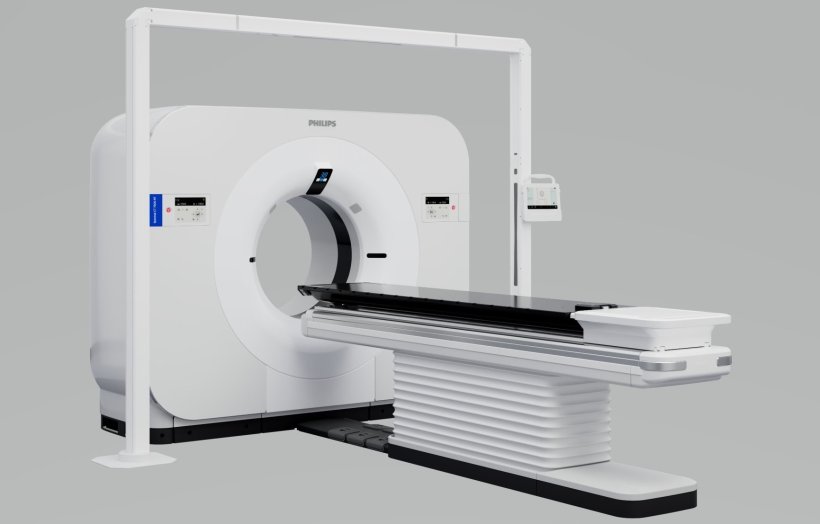
© Philips
News • System designed for radiation oncology
Spectral 4DCT imaging receives FDA clearance
Designed specifically for use in radiation oncology, new Spectral CT 7500 RT enables personalized radiation therapy planning to deliver better care for more cancer patients
Royal Philips announced a major advance in radiation oncology with 510(k) clearance from the US Food and Drug Administration (FDA) for its new detector-based spectral computed tomography (CT) radiotherapy solution. The system, named Spectral CT 7500 RT, marks the next step in personalized cancer care by integrating the unique tumor visualization and tissue characterization capabilities of spectral CT into cancer treatment and planning, the company states. The scanner is designed to enable radiation oncologists to precisely target radiation therapy to the specific physiological characteristics of a patient's tumor, minimizing damage to healthy surrounding tissue and reducing potential unwanted side effects.
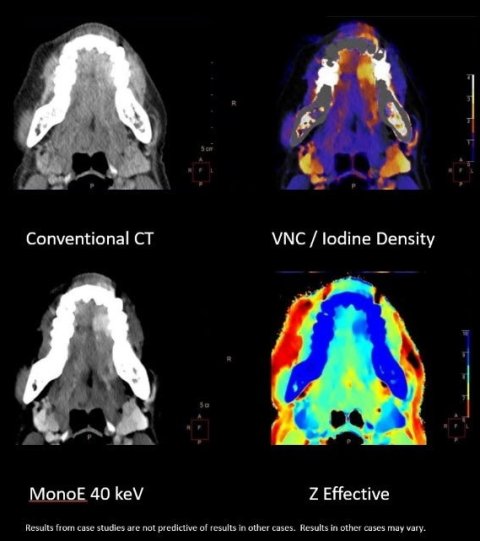
© Philips
According to Philips, the new system brings unique benefits for radiation oncology imaging by combining true conventional and spectral CT capabilities in a single scan, seamlessly integrating into existing clinical workflows. As the first radiation therapy CT scanner to offer respiratory-gated spectral imaging, radiation oncologists have all the benefits of 4D conventional CT, and can also now apply the improved visualization and quantification of spectral CT, they state. This benefits radiotherapy departments by reducing the costs of additional scans while enhancing accuracy and enabling more effective treatment plans for a greater number of cancer patients.
“Tumor delineation, beam attenuation, and respiratory motion are critical factors in radiotherapy planning. The spectral information provided by Spectral CT 7500 RT enhances tissue characterization, enabling wider access to highly personalized and precisely targeted treatment for more patients without adding extra steps to current radiotherapy workflows,” said Dan Xu, Global Business Leader of CT at Philips.
Published data shows that the stopping power ratio obtained [via spectral CT imaging] has fewer uncertainties compared to regular calibration curves, thereby reducing the uncertainty margins during treatment planning
Zhong Su
Spectral CT has been shown to reduce proton stopping-power ratio (SPR) error by more than 50% compared to conventional CT, improving the accuracy of radiation treatment and sparing healthy tissue1. Philips Spectral CT 7500 RT acquires both true conventional CT and spectral CT information in a single scan. It can automatically create the SPR map and direct electron density (ED) results with less than 1% deviation1 to enhance both the dose calculation and accuracy of radiotherapy planning.
"The Spectral CT system provides us with several capabilities that conventional CT does not have. It can provide electron density and effective atomic number results, which we can convert to the proton stopping-power ratio. And published data shows that the stopping power ratio obtained in this way has fewer uncertainties compared to regular calibration curves, thereby reducing the uncertainty margins during treatment planning," said Dr. Zhong Su, Physics Director, Department of Radiation Oncology at the University of Arkansas for Medical Sciences (UAMS) Medical Center (Arkansas, USA).
For more information about the new system, attendees of RSNA 2024 are invited to visit the Philips booth (#6730).
Reference:
Source: Royal Philips
14.11.2024



